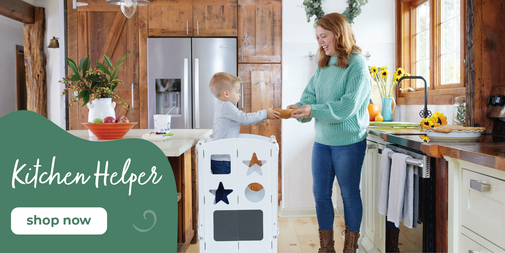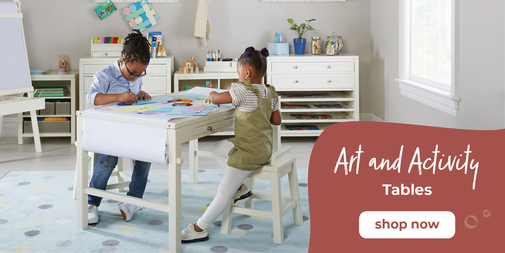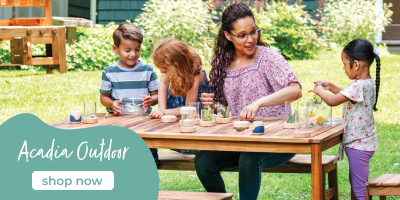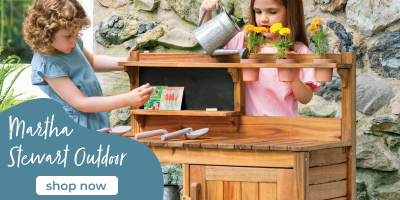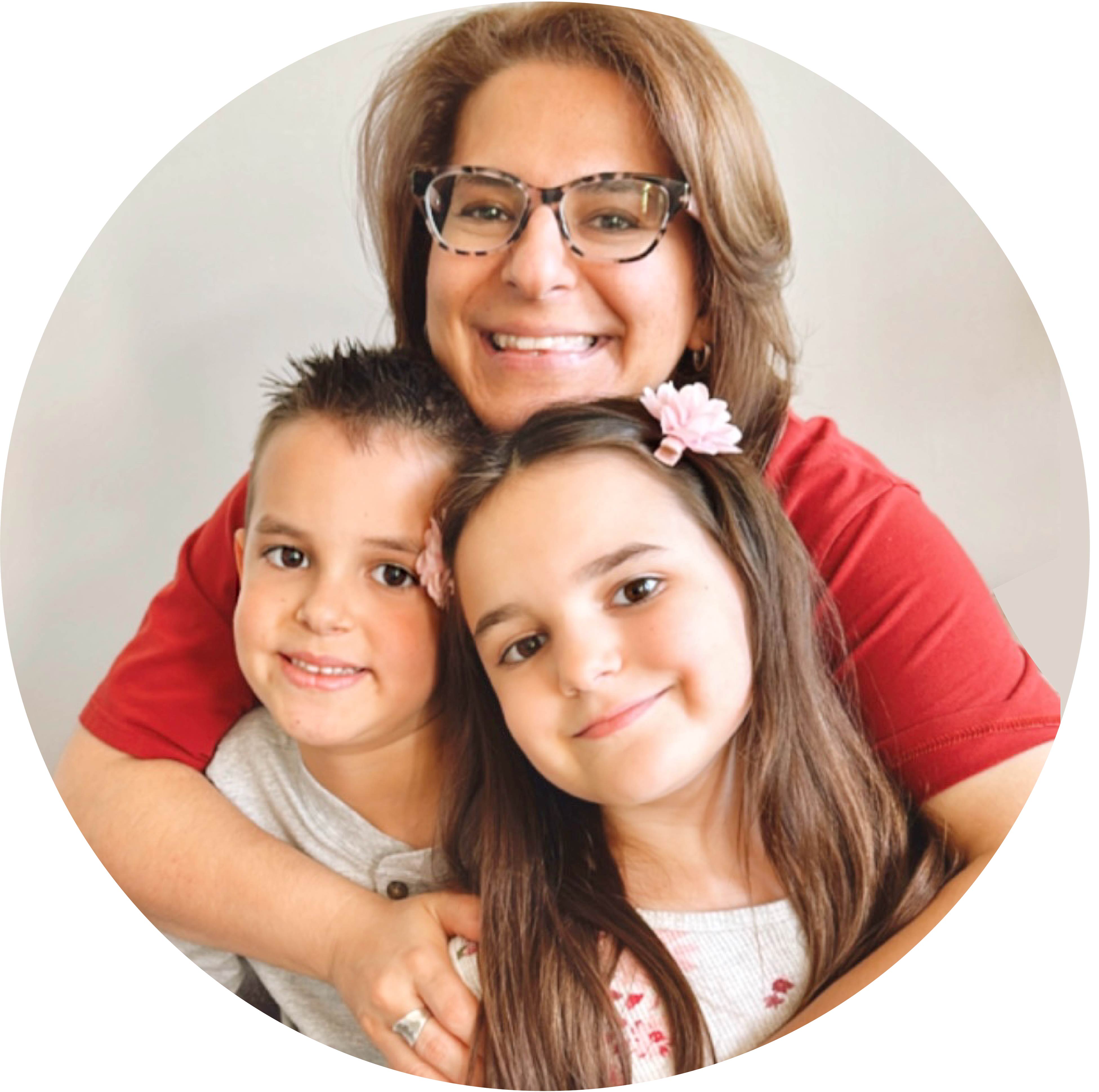Cómo crear oportunidades de aprendizaje a través del juego de simulación
El juego de simulación es una rica combinación de expresión, emociones, experiencias, lenguaje, cultura, intereses, conocimientos y mucho más. A través de experiencias prácticas y abiertas, el juego de simulación fortalece las habilidades de desarrollo de su hijo.
Cuando los niños piensan, hablan, escuchan y responden en su juego, llegan a comprender la importancia del lenguaje, cómo comunican sus pensamientos, el tono de voz y todos los matices que captan al escuchar a quienes los rodean en la vida diaria.
El juego de simulación fomenta la colaboración creativa
A medida que los niños juegan juntos, comienzan a comprender las interacciones sociales, así como la importancia de la comunicación y la colaboración. Aprenden a resolver problemas al sortear conflictos e interrupciones en sus planes. Esto se observa en situaciones en las que dos o más niños quieren jugar con el mismo juguete y encuentran una solución que satisface a todas las partes involucradas. Cuando no tienen el material adecuado para construir o crear lo que tienen en mente, a menudo lo solucionan ideando soluciones creativas, utilizando otros objetos o materiales de formas nuevas e interesantes.
El juego de simulación fomenta el desarrollo de las habilidades motoras finas y gruesas
A medida que los niños se mueven en su juego, dentro y fuera de un fuerte o una tienda de campaña, buscando hallazgos de la naturaleza o juguetes que les sirvan para algo, batiendo comida de juego en un recipiente, manipulando y moviendo animales de peluche o figuras de juguete, moviendo muñecas dentro y fuera de las habitaciones y escaleras de la casa de muñecas, están desarrollando sus habilidades motoras gruesas y finas.
Designe una zona de juego de simulación sencilla para apoyar la imaginación
Tener una zona o área de juego imaginario o dramático en la habitación o espacio de juego de tu hijo lo animará y apoyará a participar en juegos imaginativos y creativos. Esto puede ser tan simple como dejar afuera algunos peluches, telas de juego y bloques de unidades o bloques de construcción de ramas grandes .
Si tiene espacio limitado, puede dejar afuera un recipiente con una bandeja de hallazgos de la naturaleza o piezas sueltas y figuras de animales sobre una mesa de actividades, una mesa de cocina, el piso o la terraza, invitando y animando a su hijo a crear su propia escena de juego de mundo pequeño.
Mantenlo simple y completamente guiado por el niño o combínalo con juegos de conteo, tarjetas con datos de animales o libros para ampliar el aprendizaje. Esta es una excelente manera de profundizar en temas que le interesan a tu hijo.


El juego de simulación fortalece la confianza de los niños
Los centros de disfraces son una forma maravillosa de fomentar la confianza y el desarrollo de tu hijo. Los armarios, bancos de almacenaje o estantes con contenedores pueden usarse como armarios Montessori en la habitación de tu hijo o en la entrada de casa, permitiéndole tener acceso a sus sombreros, ropa, zapatos y otros accesorios.
Los niños pueden adquirir confianza y comprender la vestimenta adecuada según el clima o la ocasión al elegir su propia ropa. Para fomentar este tipo de aprendizaje, combine libros sobre el clima y la ropa, o deje de lado ciertos materiales hasta que su hijo adquiera más confianza para vestirse solo.
Los disfraces también se pueden usar como un centro o rincón de imaginación, invitando a su hijo a seleccionar y usar disfraces y accesorios para juegos de rol y simulación, ya sea como piloto, bombero, médico, artista, chef, princesa, insecto o animal, se les da la oportunidad de explorar intereses y aprender a través del juego.
Se pueden colocar tocadores en la habitación o el área de juegos de los niños para que guarden su cepillo, peine y accesorios. Esto les da su propio espacio para arreglarse por las mañanas, tal como verían a sus padres, lo que les permite desarrollar habilidades prácticas y ganar confianza. También puede ser una excelente manera de comenzar el día con afirmaciones positivas al mirarse al espejo.
El juego de simulación fomenta el desarrollo socioemocional
El juego de disfraces fomenta el desarrollo del lenguaje, las habilidades sociales, la comunicación, la colaboración, la imaginación y el pensamiento creativo.
El desarrollo emocional se apoya a medida que los niños exploran y expresan sus emociones a través del juego, adquiriendo confianza en su capacidad para tomar decisiones por sí mismos.
El juego de simulación ayuda a los niños a comprender el mundo que los rodea. A través del juego de roles, desarrollarán una comprensión más profunda de las personas y las relaciones que los rodean.
Tiendas de campaña para jugar Ofrecer a los niños un refugio acogedor, fomentar el juego colaborativo e imaginativo.

